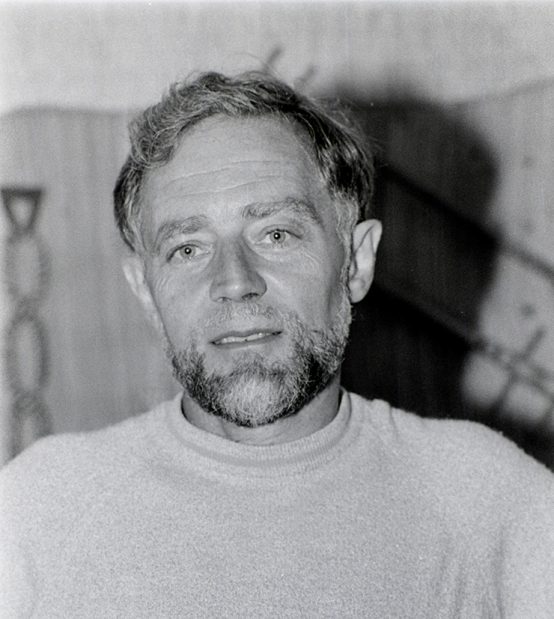
Jean-François Bill (1934–2005)
Missionary with the DM mission organization, activist in opposition to apartheid in South Africa, and ecumenical theologian

“One must not become an accomplice to injustice, for if one is committed to the Gospel one cannot remain silent.”
Born to Swiss missionaries from Canton Vaud, Jean-François Bill was a global citizen with deep roots in his native South Africa. He grew up in a family, in which the children were taught to value community service. Bill would serve as a pastor of the Tsonga Presbyterian Church, which had been established in part by the Église Libre of Vaud. He taught theology at the ecumenical Federal Theological Seminary.
His attempts to navigate identities as being white in South Africa, Swiss, a pastor, and Mutsonga left him feeling ever out of place. Many urged Bill to take the simple route and latch onto the obvious Swiss identity. Others advised Bill to become a white South African of Swiss background, as did many other children of missionaries. But what kind of Swiss citizen is someone who was born at the Elim Hospital and grew up at the mission station in Shiluvane? And what sort of white South African speaks Tsonga better than many children of Tsonga parents? These questions would haunt Bill throughout his life. Thanks to a scholarship in Chicago, Bill and his wife met leaders of the civil rights movement, something which would change their view of the world.
His church changed its name in 1982 from the ethnic and tribal sounding Tsonga Presbyterian Church to the more ecumenical Evangelical Presbyterian Church in South Africa (EPCSA). Two currents emerged in the process: the “priests” who worked together with the people and accepted the apartheid policy to a certain extent in everyday life, and the “prophets”, which coalesced in “Standing for the truth” in 1989. Bill, now moderator of the EPCSA synod, was of the conviction that the four Reformed Churches of South Africa could be united into a Uniting Presbyterian Church in Southern Africa. Bill saw for the church a dynamic and even dialectical relationship with society, to serve as the leaven of society’s dough.
His involvement in the resistance against the apartheid regime led to him being imprisoned in Johannesburg for nine months in 1986, with his family even suffering severe reprisals. He was arrested for conducting a memorial service in the tradition of contextual theology to mark the tenth anniversary of the Soweto uprising. Upon his release, he was removed from church leadership and stripped of his EPCSA ministry in 1991.
Bill’s stance towards apartheid was a sensitive topic for the EPCSA, as some of its leaders were themselves involved in the apartheid system and linked to the homelands policy and the resulting forced resettlements. This had a severe impact on the EPCSA’s relations with the Swiss mission organization Département Missionnaire DM.
Apartheid in South Africa also forced the Federation of Swiss Protestant Churches (FSPC) to grapple intensively with the complex issues of poverty, racism, and oppression between 1970 and 1990. Unsettled by the prophetic theology of the WCC and by processes of social change in Switzerland, the FSPC found it difficult to find an appropriate answer in the early 1970s. Its choice was between supporting the WCC and its anti-racism program and thus facing a crucial test within, or instead walking a careful tightrope riddled by compromise. Contrary to the WCC and the World Alliance of Reformed Churches, the FSPC did not choose to equate apartheid with sin and avoided making a clear statement in the 1980s when it expressed its “critical solidarity” with the opposition churches of South Africa. The FSPC later regretted its apartheid policy and worked through the events in three 2004 studies. As an FSPC delegation stated during a visit to South Africa in 2001: “In light of these insights, we regret that we as churches did not advocate enough for the people who were victims of apartheid and for those who spoke out against this injustice.”
Bill, on the other hand, was a member of the General Assembly of the World Alliance of Reformed Churches, which condemned apartheid as heresy in 1982. He also became a member of the Central Committee of the World Council of Churches. In 1984, Bill received an honorary doctorate from the University of Lausanne in recognition of his contribution to ecumenism and his prophetic witness against apartheid. In 1988, he became a secretary of the South African Council of Churches, a federation of churches opposed to apartheid.



